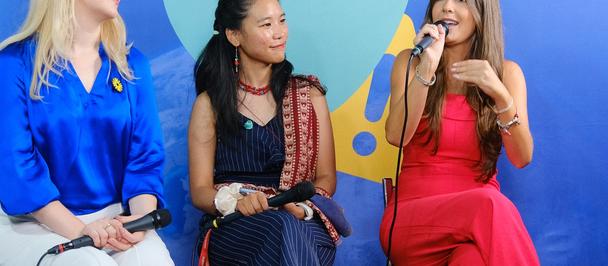In Peru, technology brings young people into politics
September 14, 2022
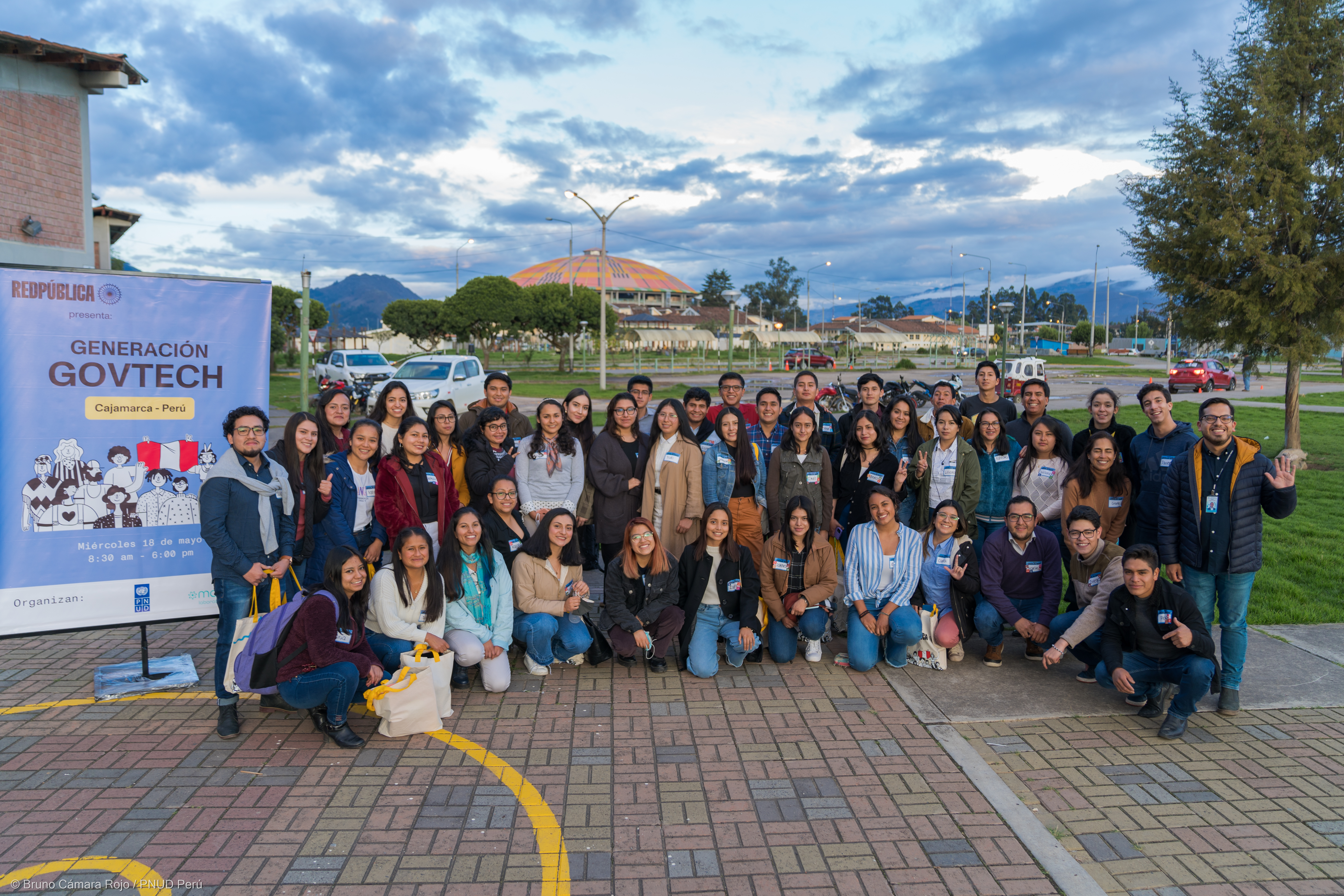
Young people participate in a hackathon in Cajamarca.
In Peru, about 68 percent of young people have expressed an interest in politics, and about a third have volunteered, donated and advocated on behalf of initiatives during the COVID-19 pandemic.
As a result young people have mobilized to fight corruption and have become known as the “Bicentenary Generation” – those who tend to have a deep mistrust of institutions and actively advocate for a more democratic society.
Yet despite many advocating for change, youth participation in the political space remains low. Less than 8 percent of registered party members are under 30.
That’s changing with the Redpública initiative, where young people are able to freely participate in the democratic policy-making process. It encourages young people to crowdsource ideas to solve the country’s most complex problems. By portraying the views and values of civil society about the pandemic recovery, people can then work together to create solutions in their communities and in their country.
Redpública is coordinated by UNDP and the Danish government under the Tech for Democracy initiative. Together they aim to democratize and decentralize knowledge on emerging practices and tools for social change, map solutions and design public policies and services that expand the public agenda. The Redpública volunteer programme has more than 140 young people engaged in 14 regions.
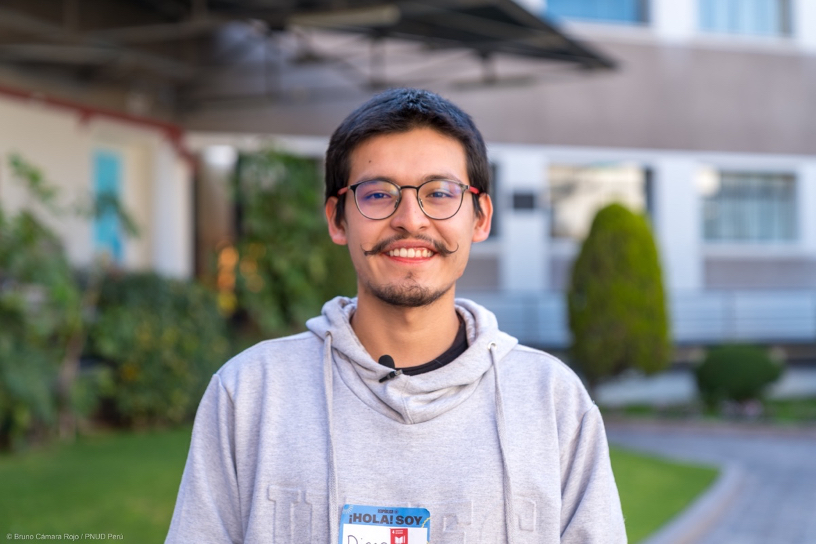
Business administration student Diego Salazar, 19, joined a hackathon in Arequipa.
Diego Salazar, 19, is a business administration student from Arequipa, and he uses Redpública to engage in problem-solving local issues that benefit society. “Open innovation spaces are important because it injects the need for innovative thinking into the citizenship’s DNA. If you want your constituents to start pushing for more disruptive ideas, have critical thoughts, then you need these spaces,” he said.
“What pushes me to participate in open innovation spaces is the impact that I can create. I like seeing how the knowledge that everyone brings to the table transforms itself into tangible solutions that benefit society.”
Redpública democratizes ideas and information and promotes human rights. Without the ability to share information, the lack of capacity for advocacy and change-making prevents people from coming together to solve local and national problems. Redpública addresses this issue, encouraging participation from all, making democratic institutions stronger and more responsive to their constituents.
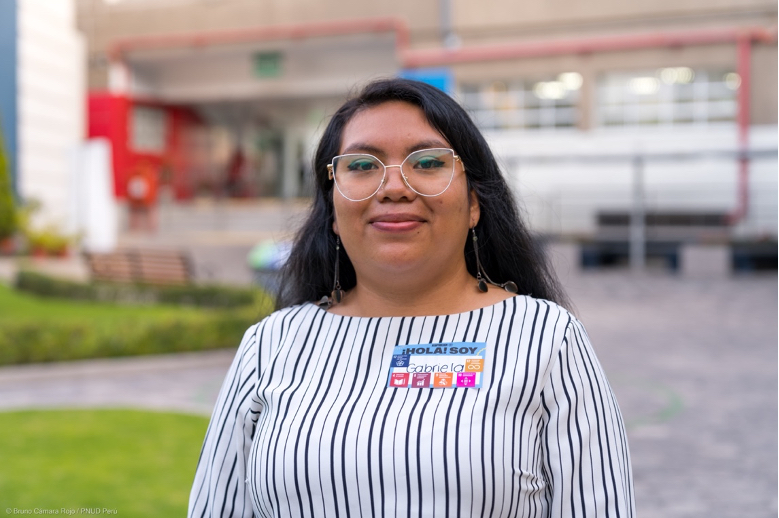
Information systems management student Gabriela Pillco, 20, attended a hackathon in Arequipa.
“I come to these spaces because I like to get in touch with the perspectives of very diverse crowds of people. I may think that I have the best solution for a complex public challenge, but it is through interactions with people from different backgrounds and different perspectives that I discover how to make my ideas better and help them keep on growing,” said Gabriela Pillco, 20, who is an information systems management student from Arequipa.
To ensure all can participate regardless of access to internet and technology or issues related to gender, race, economic status or bodily ability, UNDP, along with the Pontifical Catholic University, organizes focus groups which combine in-person meetings with telephone-mediated interviews. Policy ideas are contributed to the online platform for all to see, reducing the 'digital divide'.
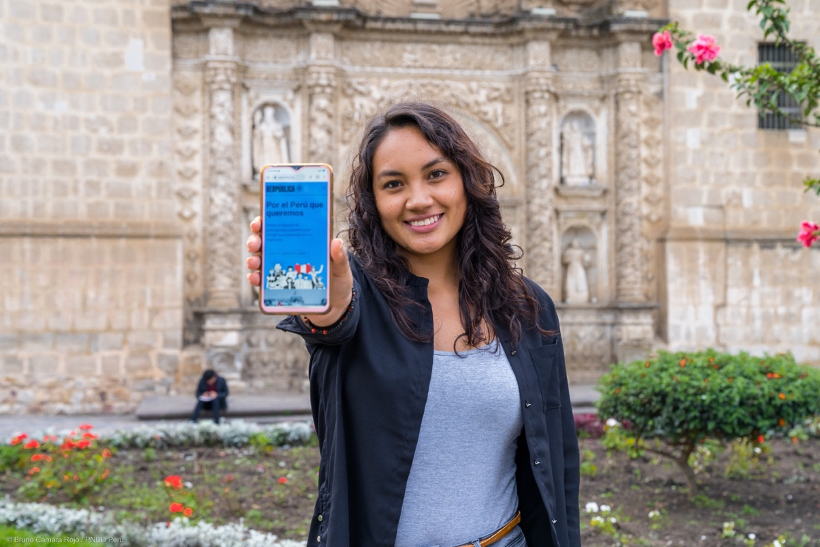
Rayssa Hijar, 23, is an architecture and urbanism student from Cajamarca.
“The platform can act as a space of catharsis. If we reach people who have always wanted their change-making ideas heard, particularly by their local authorities, then Redpública becomes a channel to release those feelings that were bottled up,” said Rayssa Hijar, 23, an architecture and urbanism student from Cajamarca.
The main focus of Redpública has been community-building, connecting more than 1,500 users, who have come up with more than 280 solutions. Each month more than 480,000 people are reached.
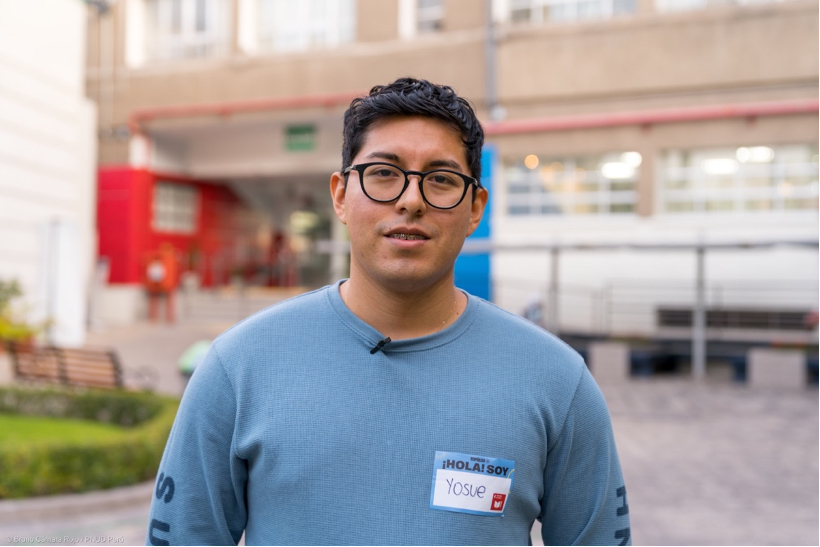
Yosue Chiré de Alarcón, 25, is an industrial engineer specializing in data science.
“Projects like Redpública are relevant because of their focus on community-building, based on consensus and shared objectives. These spaces are critical to join forces towards systemic change. Redpública provides a first step towards changing society,” said Yosue Chiré de Alarcón, 25, an industrial engineer specializing in data science.
Partnerships such as with the Presidency of the Council of Ministries map out digital solutions within Redpública’s community. And Redpública has started conceptualizing partnerships with local universities to create democracy-focused startups. These organizations advocate for the best policies which have been created by those it’s affecting the most – the people living in those communities.
“Top-down solutions can only widen the gap. We need to amplify civic spaces for honest, horizontal and safe deliberation – build engagement from the ground up. UNDP facilitated the establishment of Redpública with that objective, boosting youth political participation and increasing their contribution to policy development and decision-making. The active voices of Redpública’s community showcase the ways in which, when such avenues are opened, collective action and innovation start pouring in. The increasing number of the platform's institutional partners proves that UNDP is not betting on this alone. It’s a systemic commitment,” said Bettina Woll, UNDP Peru Resident Representative.
By working with young people, development professionals, academic partners, and civil society organizations, Redpública is including perspectives that are likely to be excluded in private-sector development. Technology can work for democracy, not against it.
UNDP is a key partner in the Danish-led Tech for Democracy initiative. The initiative brings together representatives from governments, multilateral organizations, the tech industry and civil society to make technology work for democracy and human rights. With support from the Danish Government, UNDP ensures that voices, experiences, ideas and solutions from the Global South, with an emphasis on young people is brought into the initiative to improve youth engagement with democracy. The UNDP Peru project further helps mobilize additional resources to expand the reach of young leaders in Redpública’s community.

 Locations
Locations

